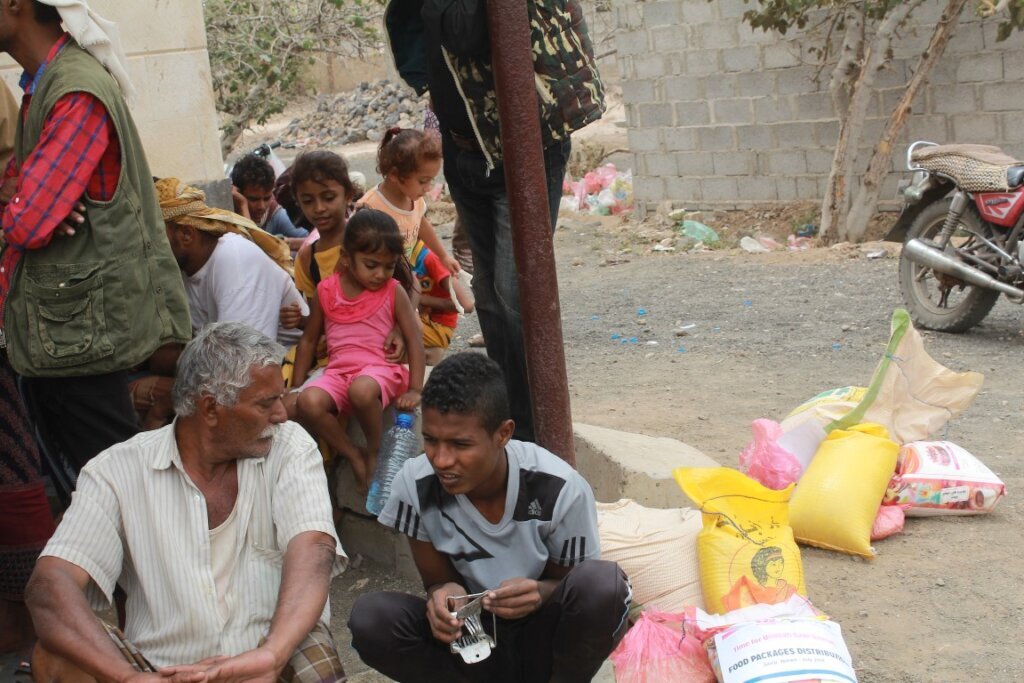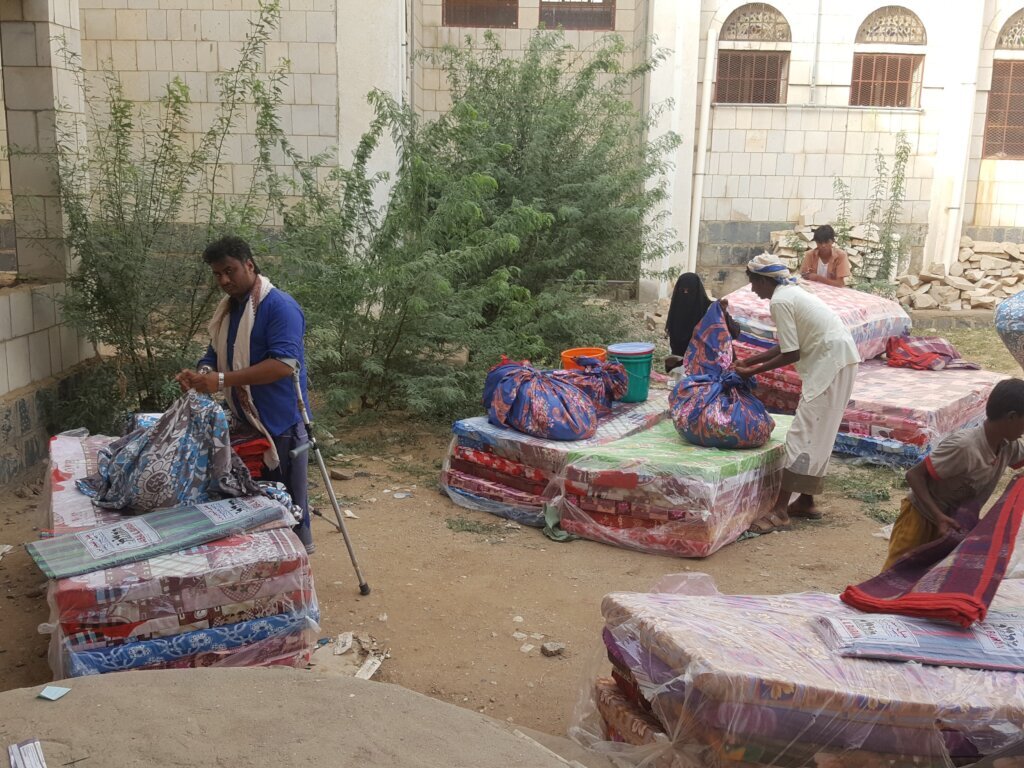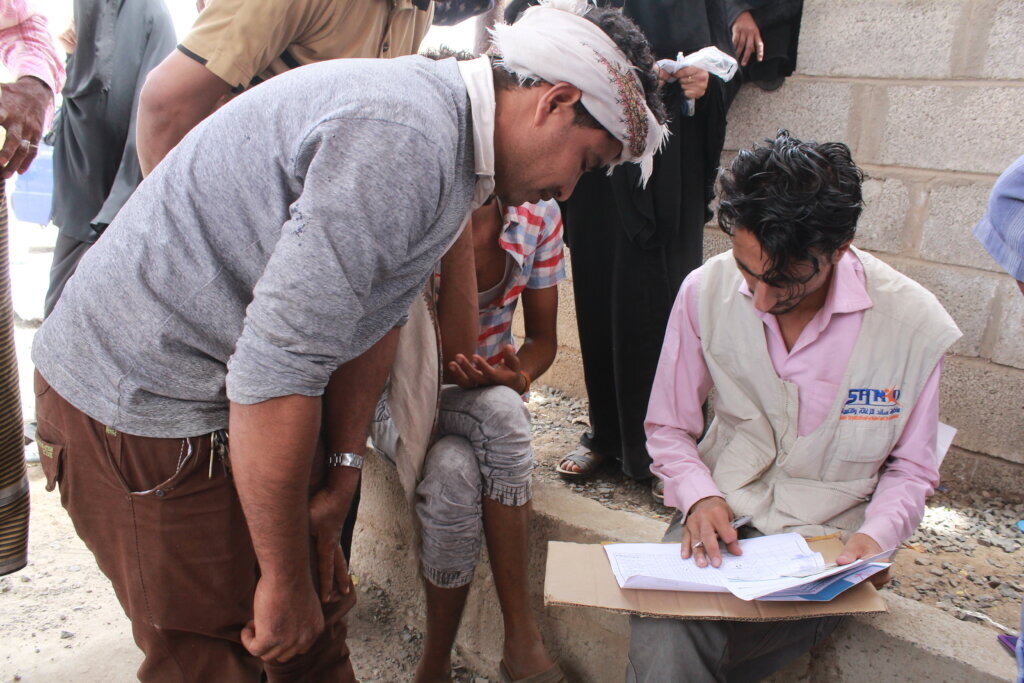Project Report
| Jul 22, 2024
Strengthening resilience during and after disaster
![]()
Monthly Performance Report - Local Partner (SORD)
Strengthening resilience during and after disasters project report
July 2024/AD
Report prepared by: Muhammad Abu Haider
project's data
project name
Strengthening resilience during and after disasters
The project Location
Yemen
Name of the organization applying for the scholarship
Sanid Organization for Relief and Development ( SORD )
Report duration
My quarter
starting date
1/3/2024
Expiry date
7/15/2024
Organization address
Municipality of the Capital - People's District - Al-Habbari
phone number
0096701205757
Report preparer
Muhammad Abu Haider
Current Position
project manager
E-mail
programmes.officer@sanid.org
mobile number
00967 775907606
The organization's website
www.sanid.org
An overview of the tragic situation in Yemen
- In a poor country like Yemen, it is very exposed to natural and unnatural disasters, and where emergencies are not taken into account, yet they are included in the list of interests of the Sanid Relief and Development Organization in providing urgent relief to those affected by disasters and wars, and providing assistance in all assistance in every disaster that any region is exposed to. Yemen. Saned has implemented previous relief interventions, and these interventions have received praise from all citizens, local authorities, organizations, actors in civil society, and other bodies and institutions. Since its establishment, Sanid has had a unit for urgent emergencies and disaster response.
- Since Yemen is always exposed to natural disasters, such as floods and torrential rains that lead to the sweeping away and destruction of homes and farms in a large way, in separate areas of Yemen such as Al-Jawf, Amran, Hodeidah, and Taiz governorates, they were exposed to a natural disaster (torrential floods that led to the demolition of many homes, the sweeping away of farms, and the occurrence of human casualties). Entire families were lost as a result of the floods, and hundreds of families were displaced from their areas after they lost their means of livelihood and shelter.
- The catastrophe of wars also adds a great tragedy to the Yemeni people, in which many families have lost shelter, food, medicine, clean water, and all sources of livelihood. Since SAND is living in the midst of this tragedy and disaster, it has established an emergency unit to confront disasters quickly and urgently, as its strategic plan included a special plan and activities to confront disasters and prepare in advance for that. The Emergency Unit updates a map of advance forecasts for areas exposed to disasters, whether natural or unnatural, while preparing a study on how to deal with them through a professional team competent in dealing with the disaster and delivering emergency aid to those affected.
Sanid Organization developed its disaster response plan, where the following activities were implemented:
Activities carried out:
- Conduct an inventory and evaluation of the areas expected to be exposed to rain and torrential disasters, which will expose them to danger, especially in the summer.
- Rent stores close to those areas.
- Providing a number of emergency relief materials that are expected to be needed by the affected families, such as non -food items (mattresses, blankets, plastic blankets, a hygiene bag, household items, and a dignity (feminist) bag).
- Foodstuffs: dry canned goods used as urgent relief for those affected due to their lack of food and their inability to make food.
- Providing an initial target of 10 families in 4 locations, so that the materials are ready in stores that protect them from damage during their storage period.
- Labor was contracted in advance (means of transportation from the warehouses to the targeted areas, with an alternative plan for transportation being developed in the event of any obstacles that hinder the delivery of relief aid to those affected.
- Aid was carried out in 1 site that was exposed to heavy rains and torrential rains. 20 families were affected with moderate damage, as follows: (10 families were assisted with food and food ( shelter ) materials, and 10 families were provided with food aid only because they were sheltered with their relatives for a temporary period.
- Distribution was made according to the affected cases according to a rapid need assessment through direct observation, which was implemented through a flexible plan that can be modified and implemented quickly.
![]()
![]() Attachments:
Attachments:
![Share on Twitter]()
![Share on Facebook]()


